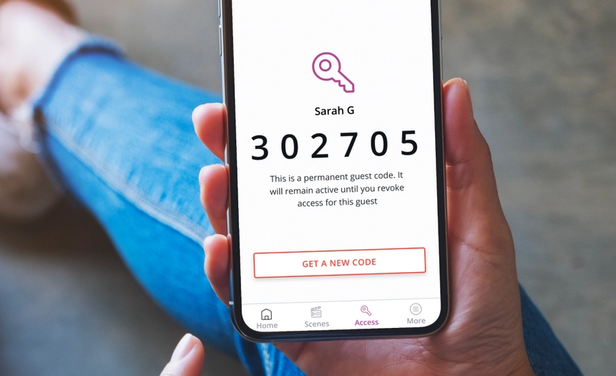

One of the major concerns that property managers face today is how to best manage their guest policies. It’s important that the guest policy is laid out clearly in the lease agreement so that residents know what to expect.
SmartRent is a leading provider of proptech solutions. Our proprietary smart building platform provides industry-leading solutions for multifamily owners and operators. Schedule a call with one of our experts to see how we can help you build a clear and enforceable guest policy using our tools.

Apartment Guest Policy Considerations
Community owners and operators should consider the following when developing a guest policy:
The maximum number of residents allowed per unit, and how many guests are permitted per residence at any given time
Overnight guest policy: i.e the maximum number of nights a guest can stay on a property during a certain time period and the number of consecutive nights a guest can stay
Guest access and how to keep away unauthorized visitors
Guest parking policy and how to enforce guest parking regulations
Limitations on number of guests that can use amenities such as a pool or gym
Securing Access to Your Community
With so many residents and visitors coming in and out, it can be challenging to secure access within your community. Property staff are to decide how many guests are allowed on property, how many visitors a single unit can have and how to manage guest access to not only the building but units and amenity spaces.
Fortunately, today’s technological advances provide solutions that help property management teams to better manage their apartment guest policy.
Guest Access Management
When developing a guest policy, it’s important to consider how to mitigate risk from unauthorized visitors. Many property management teams are turning to access control solutions to solve this problem.
Multifamily communities across the U.S. have adopted smart home hardware like intercoms, smart locks and bluetooth readers to better manage guest access.
Alongside these hardware enhancements, residents can use their smart home app to grant visitors temporary or recurring access. For example, if a resident has a frequent visitor like a dog walker or house cleaner, they can provide recurring access to the building and their unit. The visitor will then be able to enter their recurring access code on the smart locks or intercom system to gain entry.
This simplifies the process for the resident, visitor and site staff. A resident can provide access to their visitor without needing to be home and let them in, and site staff can rest easy knowing that only authorized visitors are on property.
Food deliveries and dry cleaning pick-ups are among the examples of one-time visitors who are granted temporary access. Once their delivery is completed, their access is revoked and they will not be able to re-enter the building. Residents want the ability to have items delivered directly to their door, and implementing a solution that easily does this while keeping the building safe, simply makes sense.
Amenity Access
Another consideration for your guest policy is amenity access. How will you monitor how guests access pools, gyms, business centers or other amenity spaces? How many guests is a resident allowed to have using the amenities and how will you enforce that policy?
One solution is implementing access control on amenity space doors. This gives site staff the ability to restrict access hours, limit the number of guests at any time and ensure that only authorized persons are using amenity spaces.
Guest Parking Policies
In addition to access control, parking should be a major component of a community’s guest policy. Creating a well-managed guest parking system can ease friction and help site staff to more easily manage enforcement.
Communities can implement parking sensors and decals that will notify site staff of any unauthorized parking. For example, if a guest were to park in a resident spot, site staff can very easily see that the incorrect car without a decal was parked there and then move forward with their enforcement process.
That’s not all though, owners and operators can also create ancillary revenue opportunities with guest parking signs. These signs feature a QR code that enables guests to pay for parking, which allows communities to monetize underutilized spaces. It also deters unwanted vehicles from parking on property.

Smart Solutions that Simplify your Guest Policy
The key to a great guest policy is being proactive in implementing solutions and processes that mitigate risks for the community and residents. By providing residents with expectations during the lease-signing process as well as any updates as changes are made, the guest policy doesn't have to be a pain to enforce.
To get started with implementing smart solutions that will simplify your guest policy, contact SmartRent today.